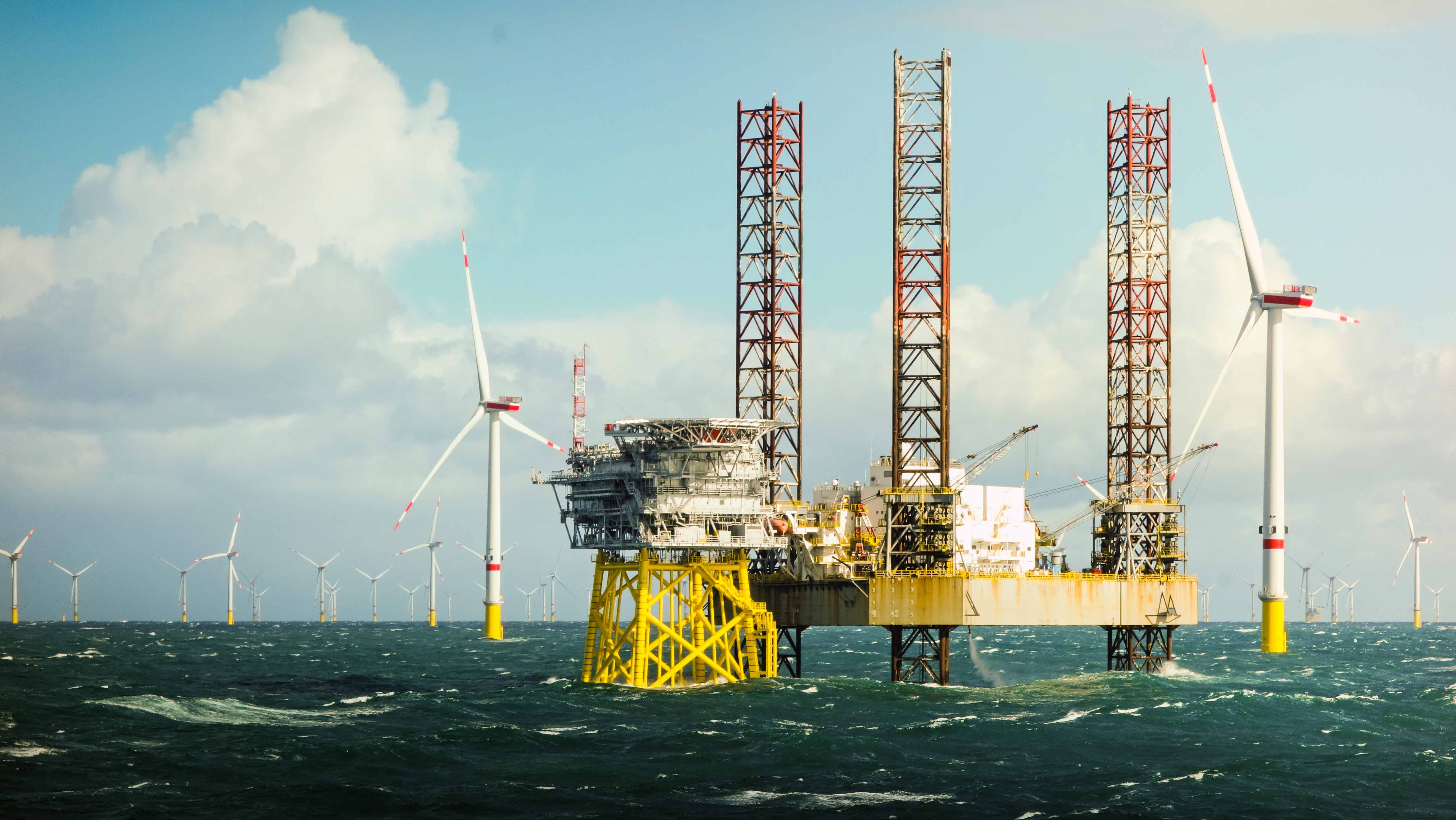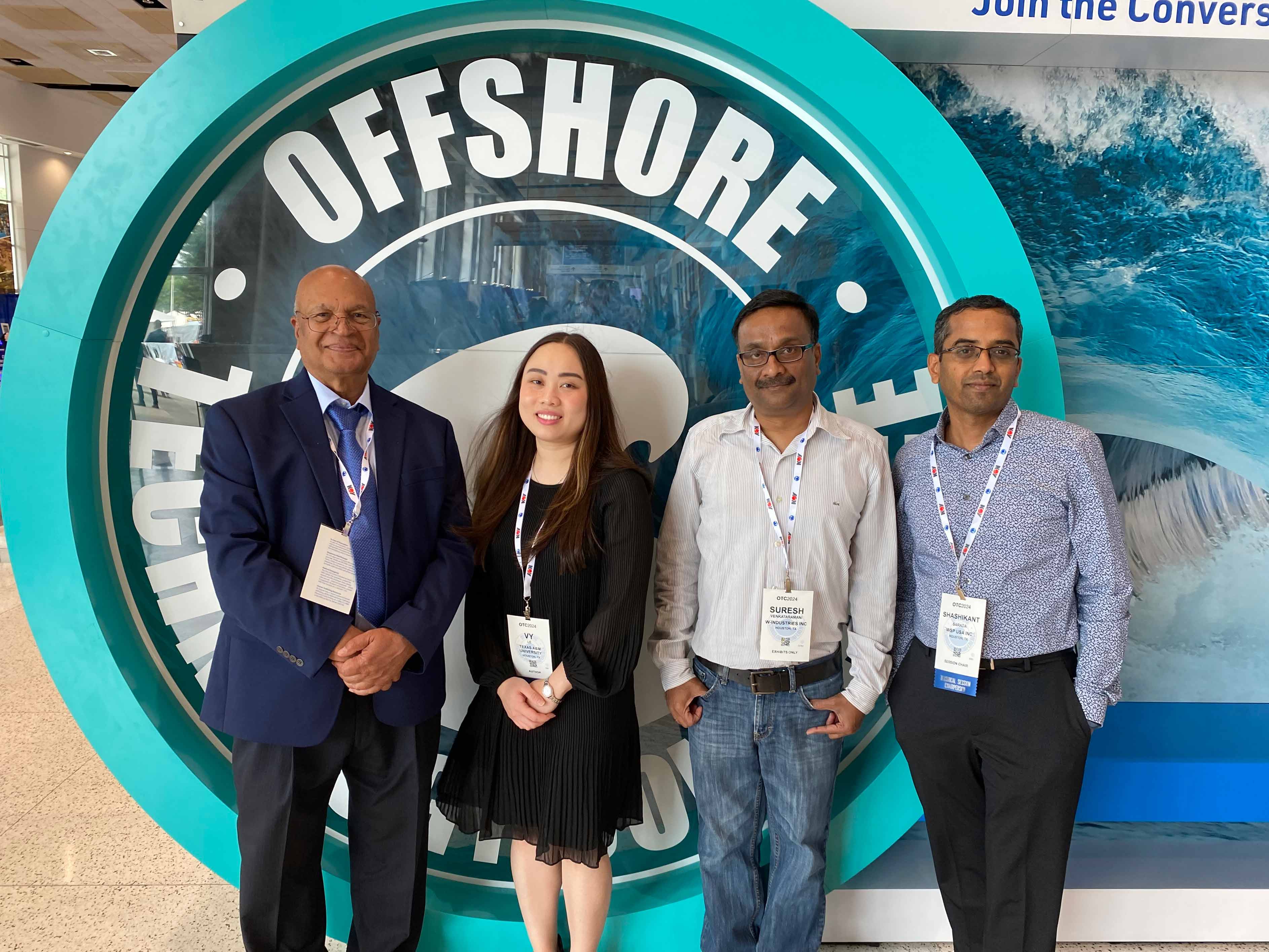
Though fall began on September 22, it still feels like summer for many in Texas and across the United States. Each year, summer temperatures occur earlier and last longer – a problem experienced across the globe. According to the U.N., the Earth is already about 1.1°C warmer than in the late 1800s and greenhouse gas emissions continue to rise.
One method to reduce the carbon footprint is through green hydrogen, an energy carrier produced by renewable energy sources. Its production contributes to global efforts to achieve the U.N.'s decarbonization goal to reduce emissions by 45% by 2030 and reach net zero by 2050. Two researchers in the Department of Multidisciplinary Engineering at Texas A&M University are working toward this goal.
Dr. Keshawa Shukla, professor of practice in subsea engineering, and interdisciplinary engineering doctoral student Vy Le, are designing an offshore hydrogen hub that can produce green hydrogen from the electrolysis of water, using the electricity obtained from an offshore wind substation.
Dr. Shukla and Vy Le’s research involves designing an offshore fixed bottom hydrogen hub that produces and stores green hydrogen from water electrolysis using electricity generated from the renewable power source of an offshore fixed bottom wind farm known as a substation. This process splits water into hydrogen and oxygen gases. Hydrogen is then processed, compressed, and stored onboard in liquid form. The economy of the hydrogen production system is evaluated using software for the existing offshore wind farms.
“Green hydrogen is the renewable energy carrier of the future, which makes this project very rewarding to work on. Also, it offers the highest efficiency among other energy sources,” Le said. Dr. Shukla is her Ph.D. advisor and encouraged her to join the project.

Vy Le presented their research at the Offshore Technology Conference 2024. Their paper, “Renewable Energy: Process Design of Green Hydrogen Production Systems Utilizing Offshore Wind Energy,” was published in the OTC 2024 Proceedings accessible through One Petro and was co-authored with Shashikant Sarada, vice-president of offshore wind engineering at WSP.
Vy Le and Dr. Shukla have created a conceptual process design for a green hydrogen production system using offshore wind power from a neighboring offshore substation. They evaluated the economics of the green hydrogen production process and identified major risks. Moving forward, they hope to collaborate with industry and research funding agencies. Though the study of green hydrogen production involves many technical and economic challenges, Vy Le and Dr. Shukla remain passionate about the research.
“Figuring out the solutions and contributions devoted to addressing the challenges for net-zero energy production has motivated me to work on this very exciting project,” Vy Le said. “More importantly, the greatest motivation that keeps me moving forward is the support from Dr. Shukla and his industry network, the MTDE department faculty and staff, my colleagues and my family.”